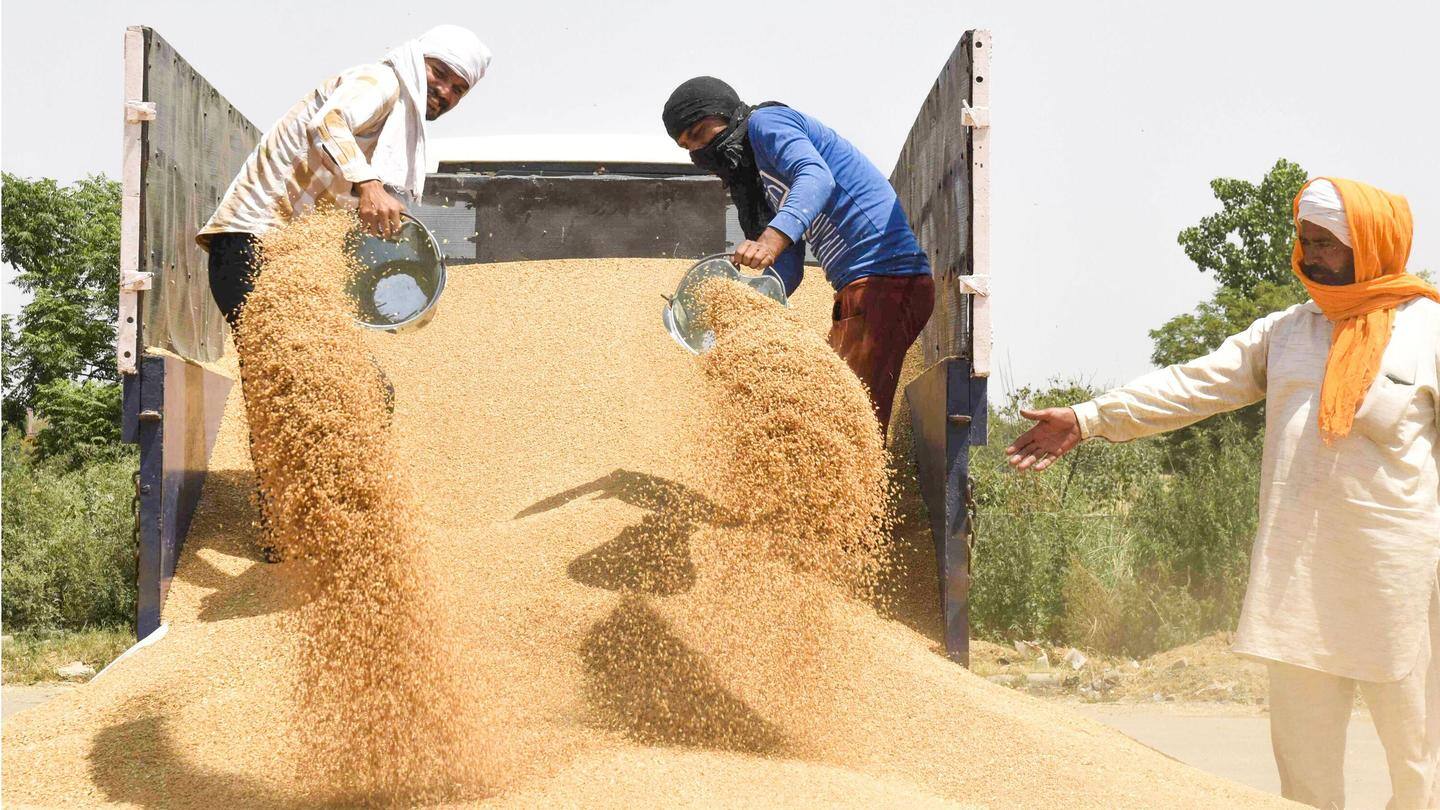
In surprise move, Chinese media defends India's wheat export ban
What's the story
After the Group of Seven (G7) nations criticized India's decision to ban wheat exports, China—in a surprise move—came to India's defense.
Chinese state media said blaming developing nations such as India will not "solve the global food crisis."
To recall, India amended its wheat export policy by putting the foodgrain's exports under the "prohibited" category to regulate food prices and strengthen India's food security.
Context
Why does this story matter?
Global food prices hit a record high in March after Russia's invasion of Ukraine in February, according to the United Nations.
Ukraine's wheat exports plunged and global wheat prices have jumped over 40% since.
Commodity traders were expecting supplies from India to make up for the other producers' shortfall due to droughts and floods threatening other crops.
Therefore, India's decision has upset many nations.
Food crisis
G7 nations criticized India's decision to ban wheat exports
"If everyone starts to impose export restrictions or to close markets, that would worsen the crisis," German Food and Agriculture Minister Cem Ozdemir earlier said.
However, China's Global Times editorial advised G7 nations—Canada, France, Germany, Italy, Japan, the United Kingdom, and the United States—not to criticize India and other developing countries.
It instead asked them to join efforts in tackling the global food crisis.
Editorial
'Blaming India won't solve the food problem': Global Times
Global Times asked G7 nations to stabilize food market supply by increasing their exports instead of urging India not to ban wheat exports.
"Although India is the second-largest wheat producer in the world, it accounts for only a small part of global wheat exports. By contrast, some developed economies, including the US Canada, the EU, and Australia are among major exporters," it added.
Reasons
Export ban expected to cool down domestic wheat prices
Meanwhile, India said export deals signed before Friday (May 13) could still be honored but future shipments need government approval.
It also said exporting wheat through government-controlled channels would not only ensure meeting the genuine needs of India's neighbors and food-deficit countries but also "control inflationary expectations."
It added that the ban on export is expected to cool down the domestic prices soon.
Bullish
Major policy U-turn on India's part
To recall, India's Commerce Ministry officials reportedly said last week they were positive about increasing the country's wheat exports and that "India was ready to feed the world."
Therefore, the ban actually seems like a policy U-turn hinting at the government's concerns over rising domestic prices.
Before the export prohibition, India had aimed to ship a record 10 million tonnes of wheat this year.
Record high
Global wheat prices surge after export ban
On Monday, wheat surged to a new record high in the European market with the price surging to €435 (roughly $450 or Rs. 35,000) per ton.
Meanwhile, the benchmark wheat index rose as much as 5.9% in Chicago. This is the highest it has been in two months.
The spike has fueled inflation globally, raising fears of famine and social unrest in poorer nations.